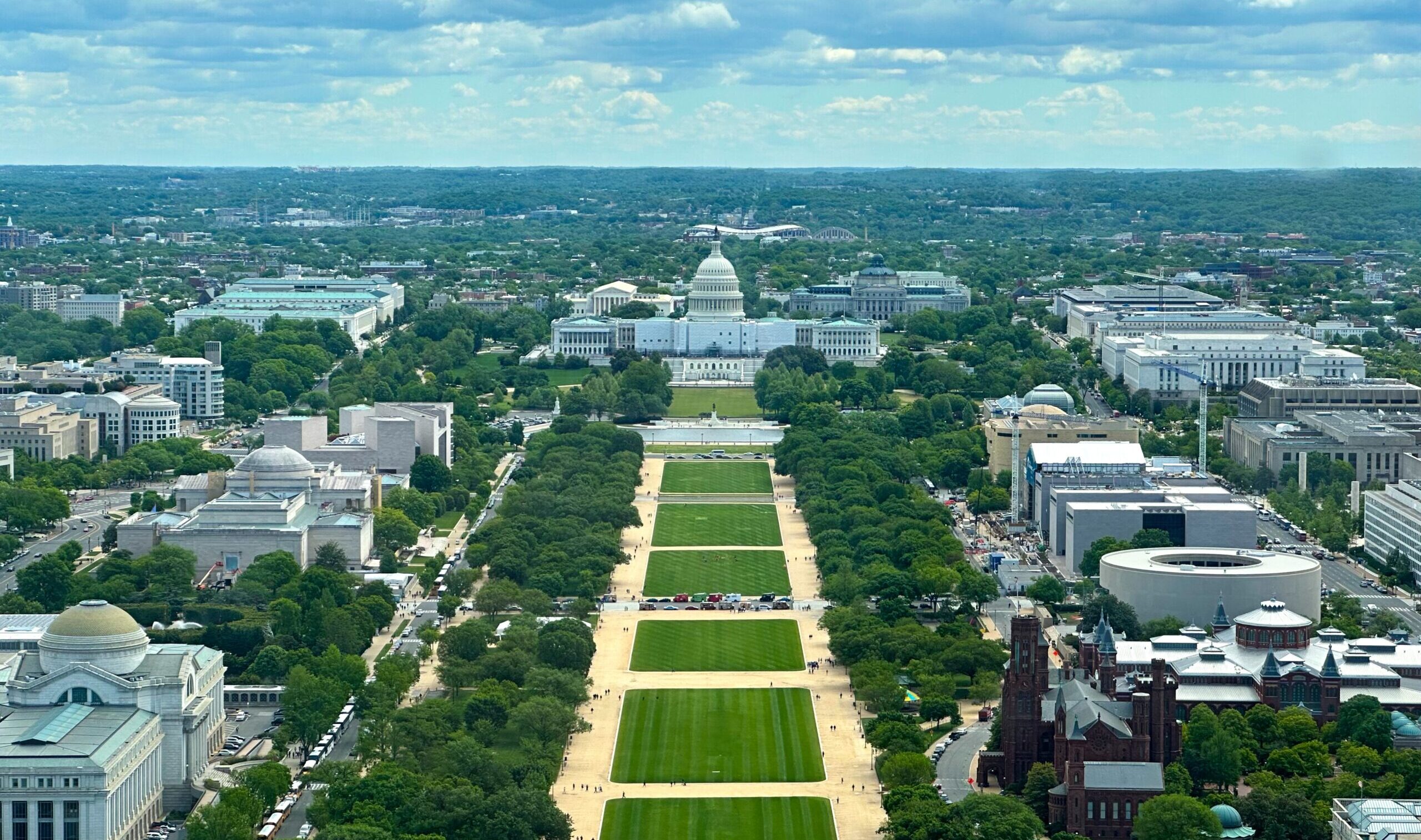A New Approach to DC Statehood
Instead of pursuing the unachievable, why not become Macao?

The question of DC statehood is once again up for debate, not that anyone is taking it too seriously. This time it was provoked by Donald Trump. In his usual offhand way, the president suggested last week that because there is “too much crime, too much graffiti, too many tents on the lawns” in Washington, control over the city should revert to the Congress and the federal government. Predictably, Mayor Muriel Bowser, who (quietly) maintains a friendly rapport with Trump, responded by offering the opposite extreme, statehood.
Of course the debate is just a game, and both parties know it. Trump made his comments in reference to a congressional bill introduced by Sen. Mike Lee (R-UT), cheekily named the BOWSER Act, which is short for “Bringing Oversight to Washington and Safety to Every Resident.” Lee’s bill seeks to overturn the Home Rule Act of 1973—one of Richard Nixon’s unsung legacies—in retaliation for the fact that Washington, like many eastern cities, is not hospitable to westerners. Trump’s deadpan comments about “taking care of the homeless” and DC’s “wonderful police department” seem to indicate that he regards the bill in the manner it was introduced—as a joke.
Likewise, Bowser’s rejoinder on Friday betrayed the attitude of someone who, though she may support DC statehood as an abstract proposition, understands that it is not a workable idea. She joked around about how the president has variously suggested that Greenland or Canada could become the 51st state before making a claim just as serious as her counterpart’s hopes for northern annexation. “I know there’s a lot of talk about someplace else becoming the 51st state,” Bowser said. “But we are going to become the 51st state.”
This is what often happens when an issue reaches a stalemate: It is much easier to make light of a difficult question than it is to answer it. And in the case of DC statehood, there is no good answer to the question. Everyone admits that the current arrangement is unworkable. D.C.’s home rule has not been a disaster, but it hasn’t exactly been a success either. And the alternatives on offer, congressional and federal control on the one hand and statehood on the other, are equally impractical. Congress and the federal government can hardly handle themselves; how can they be expected to run a city? And as for statehood—as long as Congress meets on Capitol Hill and the president lives in the White House, the idea will be a nonstarter. (It’s worth noting that while president, Joe Biden, though putatively pro-statehood, went out of his way to criticize the idea.) There has to be some neutral ground in this country for politicos.
All that being said, there is a path forward for Washington, D.C., though I fear it may not be popular in all quarters. I have always found it useful to think of the city as a “special administrative region”—something along the lines of Hong Kong’s or Macao’s relationship to China. These are regions that, while they appear to operate with a high degree of autonomy, are in reality under the thumb of Beijing, in large part because the People’s Liberation Army is garrisoned in both regions. Both regions are distinctly not-China, though of course they may as well be China. The fuzziness leaves room for a lot of strange business that could never occur on the mainland: It’s no accident that Macao is the gambling capital of Asia.
And so it is also with DC. The city exists in a strange not-state zone that it would be better served exploiting than fighting. Taxation without representation is a terrible burden, but there are some consolations, as anyone who has ever taken advantage of the city’s ersatz in-state college tuition program knows. Besides, statehood is not all it’s cracked up to be: DC may have a larger population than Vermont and Wyoming, but would any self-respecting Washingtonian want to be classed among the smallest states in the union, saddled with all the disadvantages that entails? Better to be the odd man out, perpetually finding new ways to turn weakness to strength.
The post A New Approach to DC Statehood appeared first on The American Conservative.

